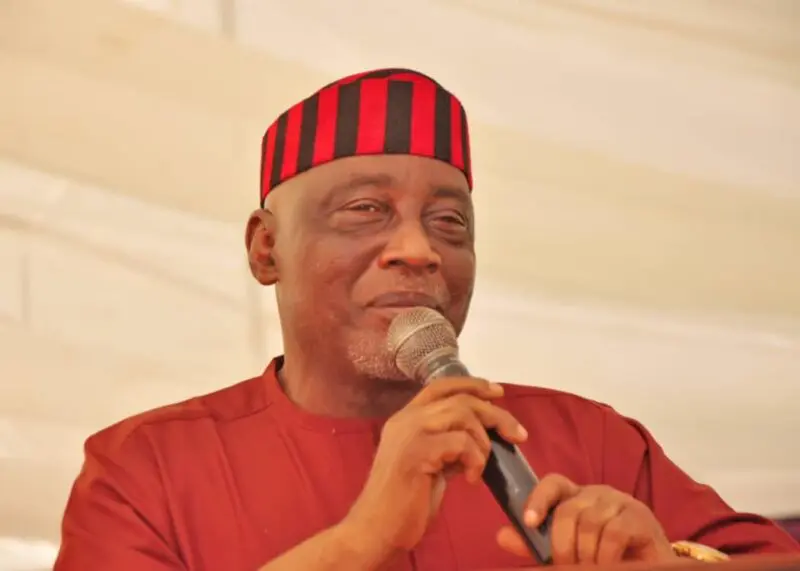Senator Abba Moro, a prominent figure within the Peoples Democratic Party (PDP) and the Senate Minority Leader, has publicly acknowledged a critical misstep in the party’s 2023 presidential campaign strategy: the nomination of former Vice President Atiku Abubakar as their candidate. Moro characterized this decision as a significant error that ultimately undermined the opposition’s chances of victory, attributing the loss, in part, to public resistance against another northern president succeeding a northern incumbent. This admission comes in the wake of the PDP’s recent decision to zone its 2027 presidential ticket to the South, a move Moro described as a corrective measure aimed at fostering unity and addressing the perceived injustice of the previous nomination process.
The PDP’s decision to zone the 2027 ticket to the South, confirmed during the party’s 102nd National Executive Committee meeting, signals a strategic shift in their approach. The party also resolved to maintain the position of National Chairman in the North. According to Moro, this decision was reached through a unanimous consensus among party leaders, recognizing the need to rectify the perceived imbalance created by fielding a northern candidate in the previous election. This represents a significant acknowledgement of the public sentiment that contributed to the party’s defeat and underscores a commitment to a more inclusive and equitable approach in future elections.
Moro elaborated on the rationale behind the 2023 decision, explaining that the PDP had initially opted to open the field to all potential candidates, aiming to present their strongest contender regardless of regional background. This strategy, however, backfired as it clashed with the prevailing sentiment against another northern presidency. The resulting public resistance significantly hampered Atiku’s campaign and contributed to the PDP’s overall electoral defeat. Moro’s candid assessment reveals a critical self-reflection within the party, recognizing the importance of aligning their strategies with public expectations and the broader political landscape.
The senator characterized the party’s loss as a “monumental” and “disastrous” setback, underscoring the depth of their regret over the choice of candidate. This candid admission reflects a deep introspection within the PDP, acknowledging the magnitude of their defeat and the need for a fundamental shift in their approach. By openly addressing the missteps of the past, the party seeks to rebuild trust with the electorate and reposition itself as a viable contender in future elections. The zoning decision, therefore, represents not only a strategic realignment but also an attempt to heal internal divisions and present a united front moving forward.
Moro’s statements provide a valuable insight into the internal dynamics of the PDP and the factors that contributed to their 2023 electoral defeat. His candid admission of the error in fielding a northern candidate highlights the party’s willingness to confront its shortcomings and adjust its strategies accordingly. The decision to zone the 2027 ticket to the South is a direct response to the public backlash against the previous nomination, signaling a commitment to inclusivity and a recognition of the importance of regional balance in Nigerian politics.
The PDP’s move to zone its presidential ticket to the South for the 2027 election marks a significant turning point in the party’s trajectory. This decision, driven by the acknowledged misstep of fielding a northern candidate in the previous election, signifies a commitment to learn from past mistakes and adapt to the evolving political landscape. By acknowledging the public sentiment against another northern presidency and prioritizing internal unity, the PDP aims to rebuild its image and regain its footing as a competitive force in Nigerian politics. The zoning of the ticket serves not only as a strategic maneuver but also as a symbolic gesture, demonstrating the party’s willingness to listen to its constituents and prioritize inclusivity in its pursuit of power. This move sets the stage for a potentially transformative period for the PDP, as it navigates the complexities of Nigerian politics and seeks to reclaim its position as a leading force in the nation’s democratic process.


